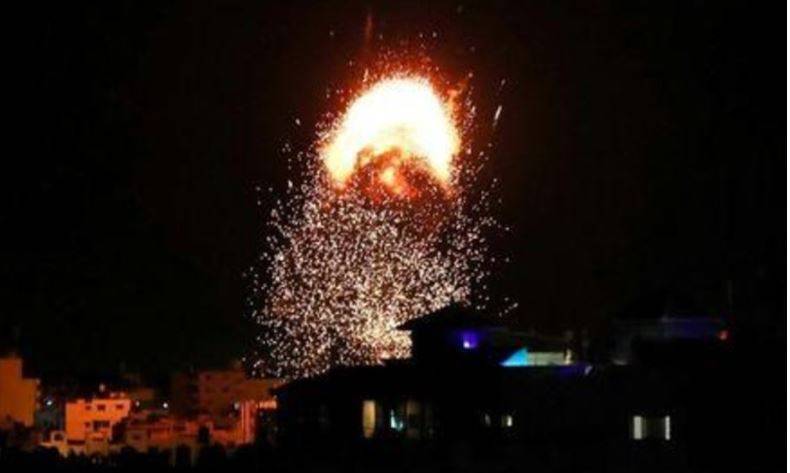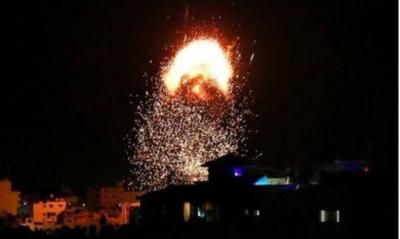On Tuesday, there appeared to be few signs of a decline in ongoing fighting for over a week between Israel and the Islamic Resistance Movement (Hamas), amid intense American and global diplomatic efforts to halt the fiercest fighting in the region in years. The Israeli military stated late Monday that Hamas and other Palestinian groups had launched around 3,350 rockets from Gaza, 200 of which were on Monday alone, and that Israeli air and artillery strikes had killed at least 130 Palestinian fighters.
Medical officials in Gaza reported that the number of Palestinian casualties since the fighting erupted last week had reached 212, including 61 children and 36 women. In Israel, ten people have been killed, including two children. Despite diplomatic efforts seemingly failing to stop the violence, General Mark Milley, the Chairman of the U.S. Joint Chiefs of Staff, warned of the risk of escalating violence. He stated to reporters before arriving in Brussels on Monday for talks with NATO allies, "My assessment is that you risk broader destabilization and a series of negative repercussions if the fighting continues." He added, "Continuing the fighting is not in anyone's interest."
Israeli airstrikes continued against Palestinian territories overnight. Rockets launched shortly after dawn struck two buildings in Gaza City, causing plumes of thick smoke to rise into the sky. Militants in the region fired rockets in the early hours of Tuesday, triggering alarm sirens in southern Israeli cities, prompting thousands to rush to shelters. There were no reports of injuries on either side. It appeared that the rocket fire from Gaza during the night was less than in previous nights. Data on rocket alerts from the Israeli military indicated that rocket launches stopped for six hours overnight before resuming at dawn. A Reuters reporter also noted that rocket fire from Gaza ceased overnight.
### Diplomatic Efforts
The White House stated in a release that U.S. President Joe Biden expressed support for a ceasefire in a call with Israeli Prime Minister Benjamin Netanyahu on Monday. However, Netanyahu told Israelis earlier that strikes on militants' sites and leaders in Gaza would continue. After a meeting with military and intelligence leaders, he said, "Our orders are to continue hitting terrorist targets... We will continue to act as necessary to restore peace and security for all the residents of Israel."
Hamas's military wing vowed to respond with more rockets. Abu Obeida, the spokesperson for the group's military wing, said, "The criminal Israeli enemy has intensified its bombardment of safe civilian houses and apartments in recent hours, and accordingly, we warn the enemy that if it does not stop immediately its bombardment of safe homes, we will resume shelling Tel Aviv."
U.S. Secretary of State Antony Blinken urged all parties to protect civilians. He stated that Israel has the right to defend itself, but also mentioned that he had not seen any evidence from Israel proving that Hamas used a building housing media offices, including the U.S.-based Associated Press, which was destroyed in a missile strike on Saturday. Hamas claimed on Monday that it has no office in the building, with spokesperson Fawzi Barhoum stating that Israel's claims are false and an attempt to justify the crime of targeting a tower used by civilians.
Egyptian and U.N. mediators have also intensified their diplomatic efforts, while the U.N. General Assembly is scheduled to hold a meeting on Thursday to discuss the situation. The Biden administration approved a $735 million precision-guided weapons sale to Israel, with sources in the U.S. Congress on Monday indicating that lawmakers are unlikely to object to the deal despite the violence.
### Violence Between Arabs and Jews in Israel
Hamas began its rocket attack last Monday following weeks of tensions over a lawsuit to evict several Palestinian families in East Jerusalem and in response to clashes between Israeli police and Palestinians near the Al-Aqsa Mosque during Ramadan. Palestinians also feel disillusioned due to setbacks to their aspirations for an independent state and an end to Israeli occupation in recent years.
Clashes occurred between Arabs and Jews in Israeli towns that have a mixed population of Jews and the Arab minority, which makes up 21% of the population. The Israeli president warned that tensions between Jewish and Arab Israelis could escalate into a "civil war." Palestinian cities in the West Bank and Arab towns in Israel are planning to organize a general strike on Tuesday, as social media posts call for solidarity "from the sea to the river."




